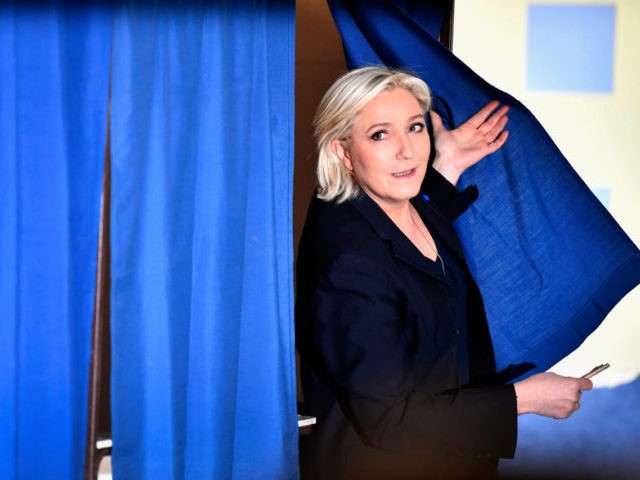PARIS (AP) — Paris prosecutors launched a preliminary investigation Thursday into whether fake news is being used to influence voting three days ahead of France’s presidential election.
Centrist presidential candidate Emmanuel Macron sued hours after his far-right adversary Marine Le Pen suggested Wednesday night during their only one-on-one debate that the former banker could have an offshore account.
Le Pen said: “I hope we won’t find out you have an offshore account in the Bahamas.”
She appeared to be referring to two sets of apparent forgeries, published just hours before their heated showdown, that purported to show Macron was somehow involved with a Caribbean bank and a firm based on the island of Nevis.
Macron’s camp said the former investment banker was victim of a “cyber misinformation campaign.” Speaking on France Inter radio, Macron blamed Le Pen for spreading “fake news” and said he never held a bank account “in any tax haven whatsoever.”
“All this is factually inaccurate,” Macron said.
Le Pen quickly backed away from the suggestion Thursday as those rumors were debunked. But prosecutors soon after launched a probe into suspicions of forgery and the spreading false news in order to divert votes.
Le Pen and Macron face off in France’s presidential runoff Sunday, with the latest opinion polls showing the pro-EU Macron holding a strong lead over his far-right rival.
In the alleged documents, the “M” in Macron’s purported signature didn’t match his genuine sign-off, and whoever wrote the documents appeared confused as to whether the firm in question was a limited company or a limited liability corporation. Metadata embedded in the document suggest it was created just before being posted online — undermining the anonymous poster’s claim to have circulated the documents to “hundreds of French journalists” who had “all sat on this.”
Asked Thursday on BFM TV whether she was formally accusing Macron of having a secret offshore account, Le Pen said: “Not at all. If I wanted to do so I would have done it yesterday. I’ve just asked him the question. If I had proof, I would have claimed it yesterday.”
The provenance of the latest conspiracy theory isn’t clear, but there are hints tying the faked documents to far-right circles in California.
One of the documents purports to have been drawn up under the laws of Nevis but actually draws some of its language from a guide to forming limited liability companies in California. The documents first appeared on Mixtape, a relatively new northern California-based file sharing service.
The Macron campaign identified the first tweet referring to the documents as coming from the Twitter account of Nathan Damigo, a far-right activist and convicted felon also based out of northern California. Damigo is known on social media for punching a female anti-fascist in the face at a protest in Berkeley.
Messages left with Damigo weren’t immediately returned.
Macron, meanwhile, got support from former U.S. President Barack Obama. In a message posted Thursday on Macron’s Twitter account, Obama said he was endorsing the centrist candidate “because of how important this election is.”
“The French election is very important to the future of France and the values that we care so much about,” Obama said. “I have admired the campaign that Emmanuel Macron has run. He has stood up for liberal values. He put forward the vision for the important role that France plays in Europe and around the world. And he has committed to a better future for French people.”
Obama ended his message with the words “En Marche” — which is the name of Macron’s political movement and “Vive La France.”

COMMENTS
Please let us know if you're having issues with commenting.